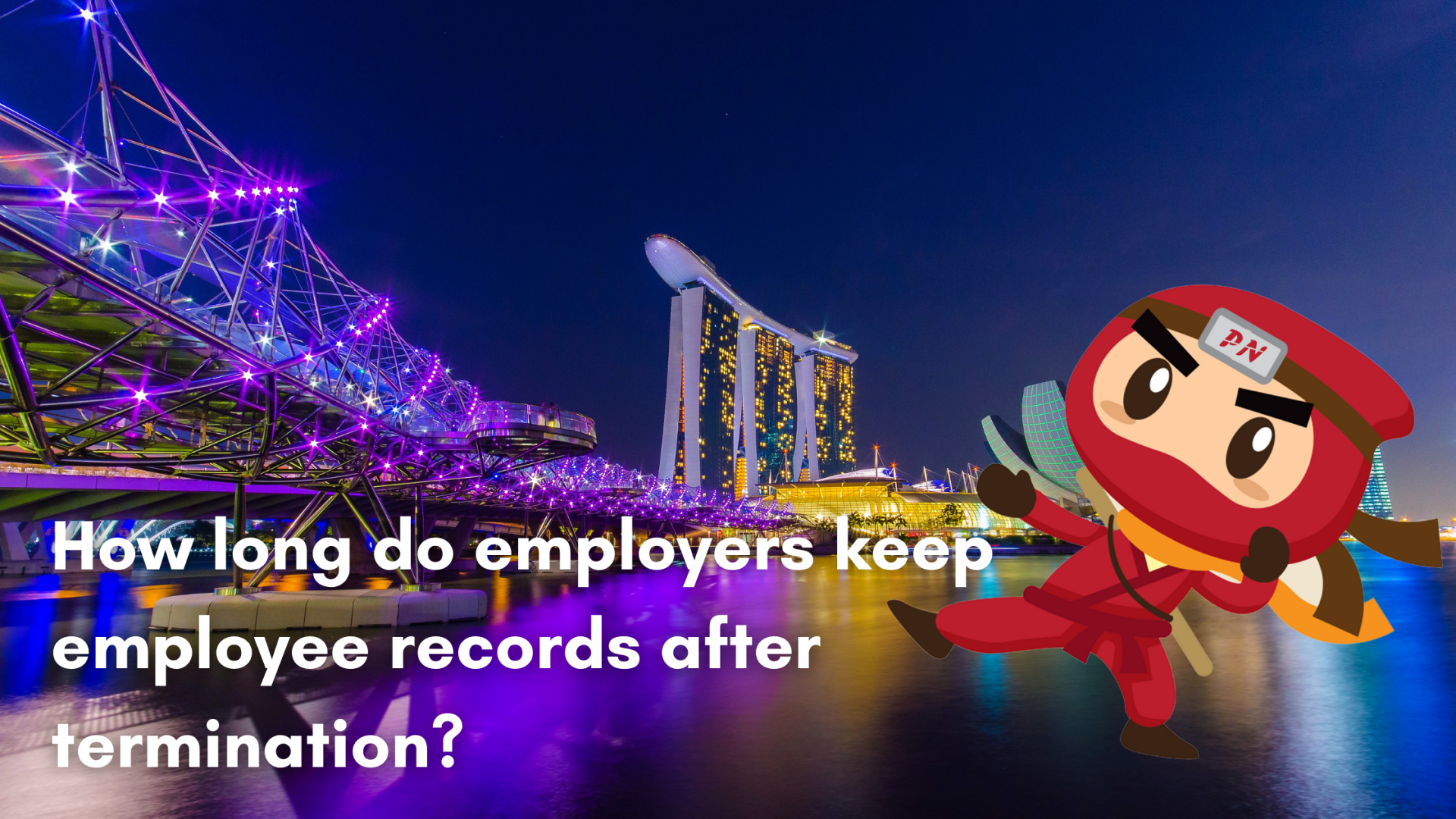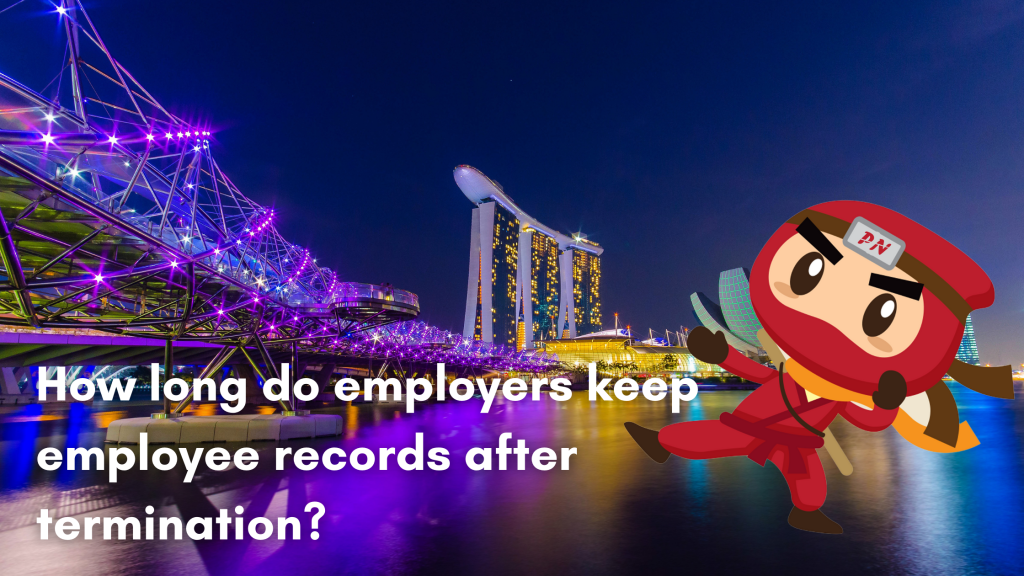KEEP IN TOUCH
Subscribe to our mailing list to get free tips on Data Protection and Cybersecurity updates weekly!







When an employment relationship ceases for whatever reason, employers still have a responsibility to keep employee personnel files in a secure location. Depending on the country where you are employed, the length of time employee records must be kept differs. For this article, we will focus on the Singaporean context and what it entails. Yes, even employee records still fall within an individual’s personal data. As such, these are duly protected under the PDPA Act 2012 of Singapore.
But before we get there, let’s have a quick definition of terms and understand what specific data is enclosed within “employment records”.
According to the Ministry of Manpower in Singapore, all employers must maintain a detailed employment records of employees covered by the Employment Act. This rule was enacted on 1 April 2016.
Personal data should not be kept for longer than is necessary, and should be removed as soon as it is reasonable to assume that the purpose for which that personal data was collected is no longer being served by retention of the personal data, and retention is no longer necessary for legal or business purposes.
Singapore data protection guidance and legislation
Also Read: Basic Info On How Long To Keep Accounting Records In Singapore?

Before we even start asking, “how long do employers keep employee records after termination”, let’s look at what constitutes “employment records”. In Singapore, there are two categories included under employment records:
Information related to employee health or medical benefits and related documents are not included in this context of employee records. The format of these records may include soft or hard copy, including handwritten records.

For one, because employee records are considered personal data and are thus covered under the PDPA, terminated employees have the right to know the retention status of these records. Organizations that keep employee records far longer than what has been mandated by law may land in hot water.
For another, in the event of claims or issues to be raised, these records will serve to protect both the employer and the employee. Again, the crux of the conversation is: destroying the records too soon will be detrimental to the employer, but hanging on to the records longer than necessary may mean possible legal liability in the future.
Appointing a Data Protection Officer (DPO) is necessary for Organizations to have as it is the officer responsible for overseeing data protection responsibilities and ensuring that these are complied with based on the Personal Data Protection Act (PDPA). A DPO will ensure that no employee records will not be kept more than what is legally required.
For instance, at Privacy Ninja, we randomly conduct simulated email phishing to clients to see if there are any vulnerabilities present that a bad actor can exploit and patch them up to ensure that the client’s data will never leak.
A DPO is also the person responsible for developing and enforcing the Organization’s data protection policy and may seek assistance or guidance from other DPOs through DPO networks or organizations. With this, the organization can rest assured that the employee records will be dealt with according to law to avoid financial penalty.
A DPO can also ensure that the storage of personal data of these employees are stored well and no instance of it getting used accidentally. This is because there are instances that the former employee’s data will be used as templates for the job applicants to use, and this could potentially lead to a data breach.
Also Read: The 12 Important Details For Employment Contract Template
So, how long do employers keep employee records after termination? If you ask the Ministry of Manpower, the terminated employee’s records for the last two (2) years must only be kept for one (1) year after the employee leaves his or her employment.
Hence, if you are the terminated employee, you only have that much window to raise any possible issues or claims you have against your former employer. As for the employer, keeping employee records for a reasonable period of time post-termination can help them contradict any claims made by a former employee. It’s a win-win situation for both.